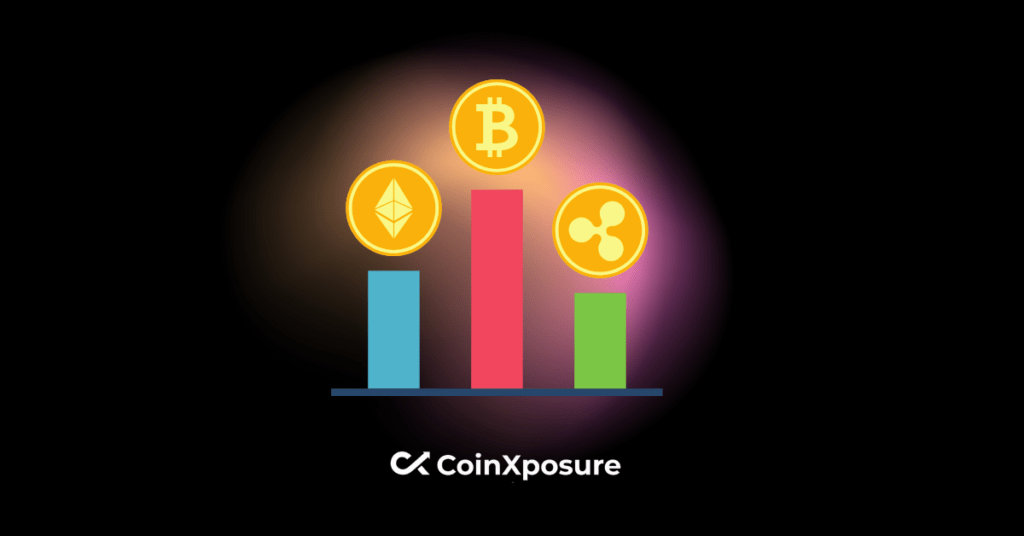As the financial landscape continues evolving, synthetic cryptocurrencies have emerged as a prominent investment avenue, offering unique benefits and inherent risks.
Synthetic or tokenized cryptocurrencies represent digital assets that derive value from underlying assets such as cryptocurrencies, stocks, commodities, or fiat currencies through smart contracts and blockchain technology.
In this article, we will explore the advantages and pitfalls of investing in synthetic cryptocurrencies, shedding light on the opportunities and challenges investors may encounter in this rapidly expanding market.
Benefits of Investing in Synthetic Cryptocurrencies
Here are some benefits of investing in synthetic cryptocurrencies:
- Diversification
- Accessibility
- Flexibility
Diversification
Synthetic cryptocurrencies provide investors with the opportunity to diversify their portfolios beyond traditional assets.
By tokenizing various assets such as stocks, commodities, or real estate, investors can gain exposure to a broader range of markets and sectors, potentially reducing overall portfolio risk.
Accessibility
Unlike traditional investment avenues, which may have high barriers to entry such as minimum investment requirements or geographic restrictions, synthetic cryptocurrencies offer greater accessibility.
Investors can access fractional ownership of high-value assets, allowing for more flexible investment strategies.
Flexibility
Synthetic cryptocurrencies enable investors to trade 24/7 without the limitations of traditional market hours.
Additionally, investors do not need to worry about the logistics of owning and storing physical assets, as transactions are conducted digitally through blockchain technology.
Synthetic cryptocurrencies offer investors the potential for diversification, accessibility, flexibility, innovation, and cost efficiency in their investment portfolios.
Risks of Investing in Synthetic Cryptocurrencies
Here are some risks of investing in synthetic cryptocurrencies:
- Counterparty Risk
- Regulatory Uncertainty
- Market Volatility
- Security Concerns
Counterparty Risk
Synthetic cryptocurrencies are often issued by third-party platforms or protocols, exposing investors to counterparty risk. Investors may suffer financial losses if the issuer becomes insolvent or fails to fulfill its obligations.
Regulatory Uncertainty
The regulatory landscape surrounding synthetic cryptocurrencies is still evolving, leading to legal and regulatory compliance uncertainty. Changes in regulations or crackdowns by regulatory authorities could impact the value and legality of synthetic assets.
Market Volatility
Synthetic cryptocurrencies, like their traditional counterparts, are subject to market volatility. Extreme price fluctuations can occur due to various factors such as market speculation, changes in investor sentiment, or technological vulnerabilities.
Security Concerns
The digital nature of synthetic cryptocurrencies makes them susceptible to security risks such as hacking, cyber attacks, or smart contract vulnerabilities. Investors may lose their assets if security breaches occur on the platform or protocol hosting the synthetic assets.
Investing in synthetic cryptocurrencies carries inherent risks related to counterparty risk, regulatory uncertainty, market volatility, security concerns, liquidity risk, and lack of transparency.
Investors should carefully assess these risks and conduct thorough due diligence before investing in synthetic assets.
Conclusion
While synthetic cryptocurrencies offer enticing opportunities for diversification, accessibility, and innovation in investment portfolios, they also come with significant risks that investors must carefully consider.
The benefits of diversification, accessibility, flexibility, innovation, and cost efficiency are balanced by counterparty risk, regulatory uncertainty, market volatility, security concerns, liquidity risk, and lack of transparency.
In navigating synthetic cryptocurrencies’ complex and rapidly evolving landscape, investors should seek professional advice, stay informed about regulatory developments, and exercise caution when investing in this emerging asset class.
While synthetic cryptocurrencies promise innovation and growth, prudent risk management practices are essential to safeguard investors’ capital and maximize long-term investment returns.

